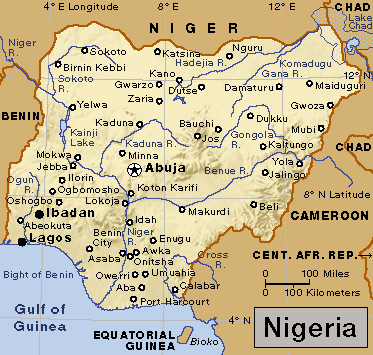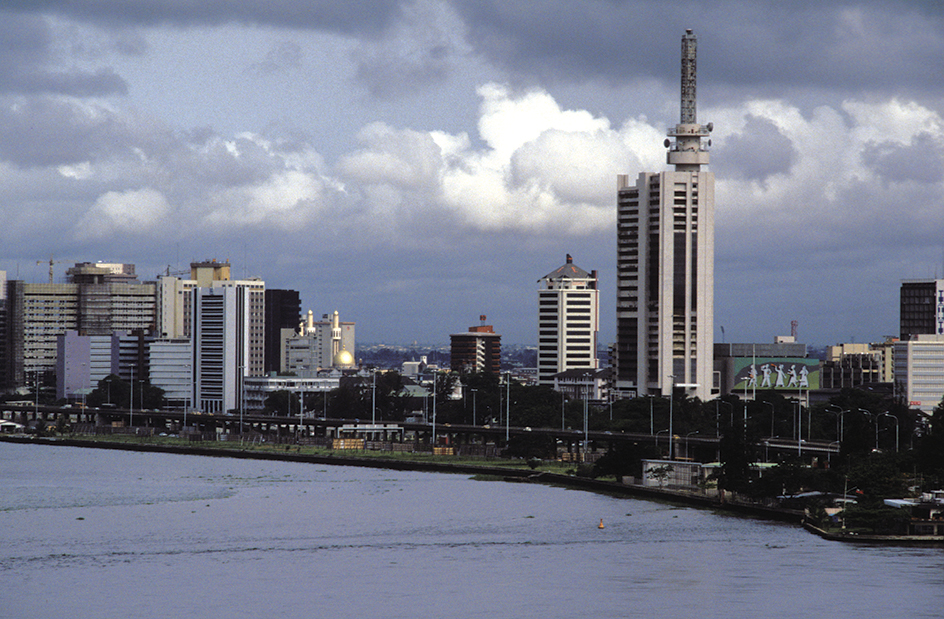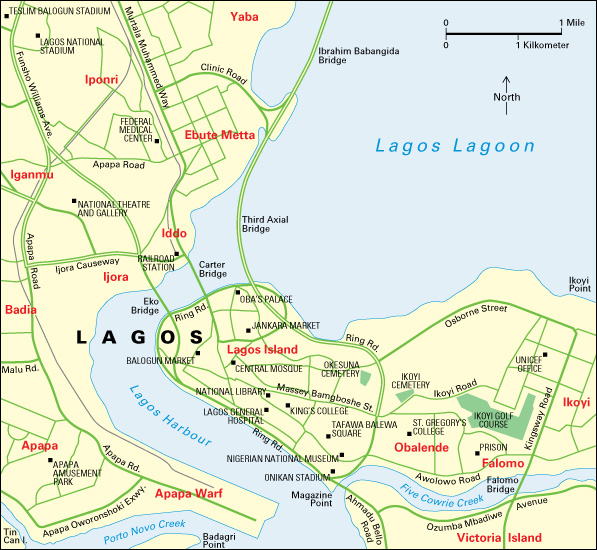Lagos << LAH gohs or LAY gos >> (pop. 12,550,598) is the chief commercial center of Nigeria. Located in southwestern Nigeria, Lagos lies partly on the African mainland and partly on four islands in the Gulf of Guinea.

Lagos is Nigeria’s chief port and commercial center. Lagos serves as the chief outlet for Nigeria’s animal hides and skins, cacao, palm tree products, peanuts, and timber. The city’s air, railway, road, and water transportation facilities provide links with other parts of Nigeria. An international airport operates at nearby Ikeja.

Lagos is Nigeria’s main manufacturing city. Its industries include the assembly of motor vehicles and radios, brewing, food processing, oil storage, steel processing, and the production of textiles, soap, and candles.
Yoruba people lived in what is now Lagos before Portuguese explorers arrived in the late 1400’s. Lagos was a major slave market until 1851, when it became a British protectorate. The United Kingdom annexed Lagos in 1861 and made it the capital of Nigeria in 1914.
In 1980, the Nigerian government began building a new city called Abuja near the center of the country to replace Lagos as the capital. In December 1991, Abuja became Nigeria’s official capital. By the late 1990’s, most government ministries had moved their headquarters to Abuja.

See also Abuja.
